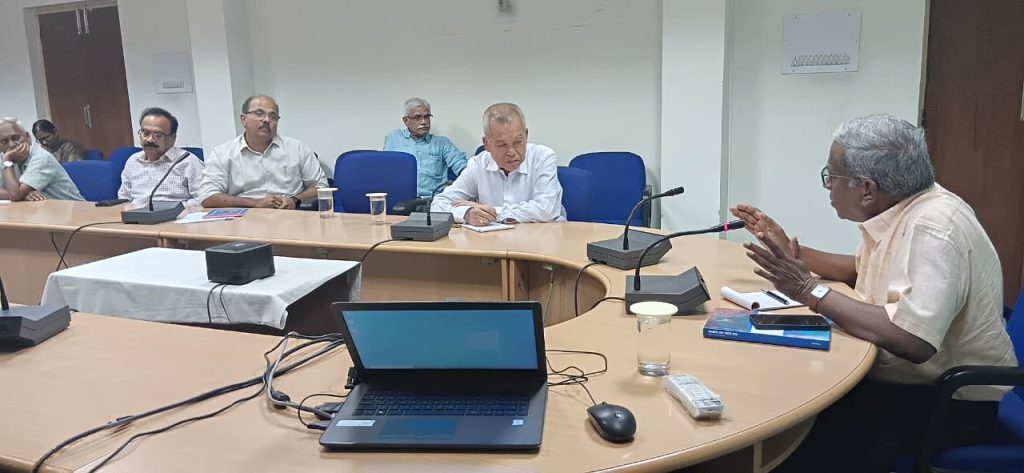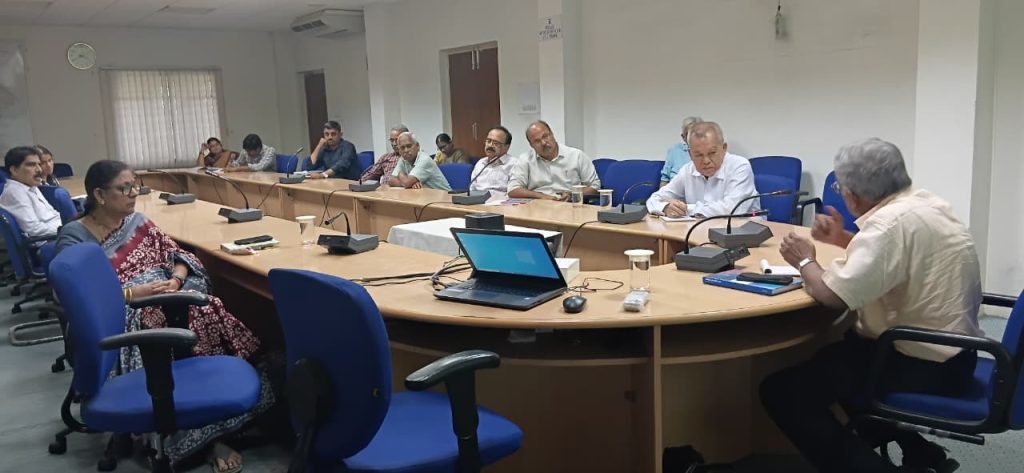

The Centre for Economic and Social Studies (CESS) hosted a seminar on “Gramsci and South Asia: A Dialogue with Subalterns” by Prof. Arun Kumar Patnaik, Retired Professor of Political Science, Hyderabad Central University, on 17th September 2025 at CESS. The session was chaired by Prof. Amar Yumnam, Visiting Professor, CESS.
The gathering was welcomed by Prof. B. Suresh Reddy, who also introduced the speaker.
Key Reflections by Prof. Arun Kumar Patnaik in the Seminar:
South Asian scholars can learn five essential lessons from Gramsci. First, it is vital to historicise Gramsci’s theory in South Asia by assimilating his ideals and conceptual tools when they align with the principles of our native intellectuals from the interwar period. Second, a nation’s intellectuals must dialectically engage with the social imaginary of the masses to effect transformation. Gramsci urges intellectuals to heed the protagonist’s advice in the Hindi film Chennai Express: “Don’t underestimate the power of the common man.” However, he also cautions against the opposite extreme of glorifying common sense. A critical respect for understanding the masses and a willingness to learn from and unlearn their feelings and perceptions are crucial for any intellectual project aimed at mass transformation. Third, engaging in dialogue with the subaltern masses may involve multiple pathways, as the social imaginary comprises a hierarchy of consciousness: common sense, religious common sense, folk religion, popular religion, and official religion. Consequently, the transformative project should be plural rather than singular. Fourth, a modern initiative must be rooted in traditional sectors through dialogue with the masses while pursuing secular and developmental goals. C. R. Das’s engagement with religious minorities when introducing universal adult suffrage in the Bengal Assembly during the 1920s offers a crucial lesson for modern India. Similarly, the dialogues initiated by A. B. Vajpayee with terrorists, Islamic clerics, and Jyoti Basu with community leaders in the Haldia project present compelling cases of dialogue from India’s post-colonial history. Fifth, a philosophical project aimed at achieving hegemony must learn from the strengths of its adversaries while critically assessing their limitations, partly because its subaltern support can be a source of strength, necessitating dialogue with both the subalterns and the adversary.
The seminar concluded with an engaging discussion among faculty, researchers, scholars, and students.
